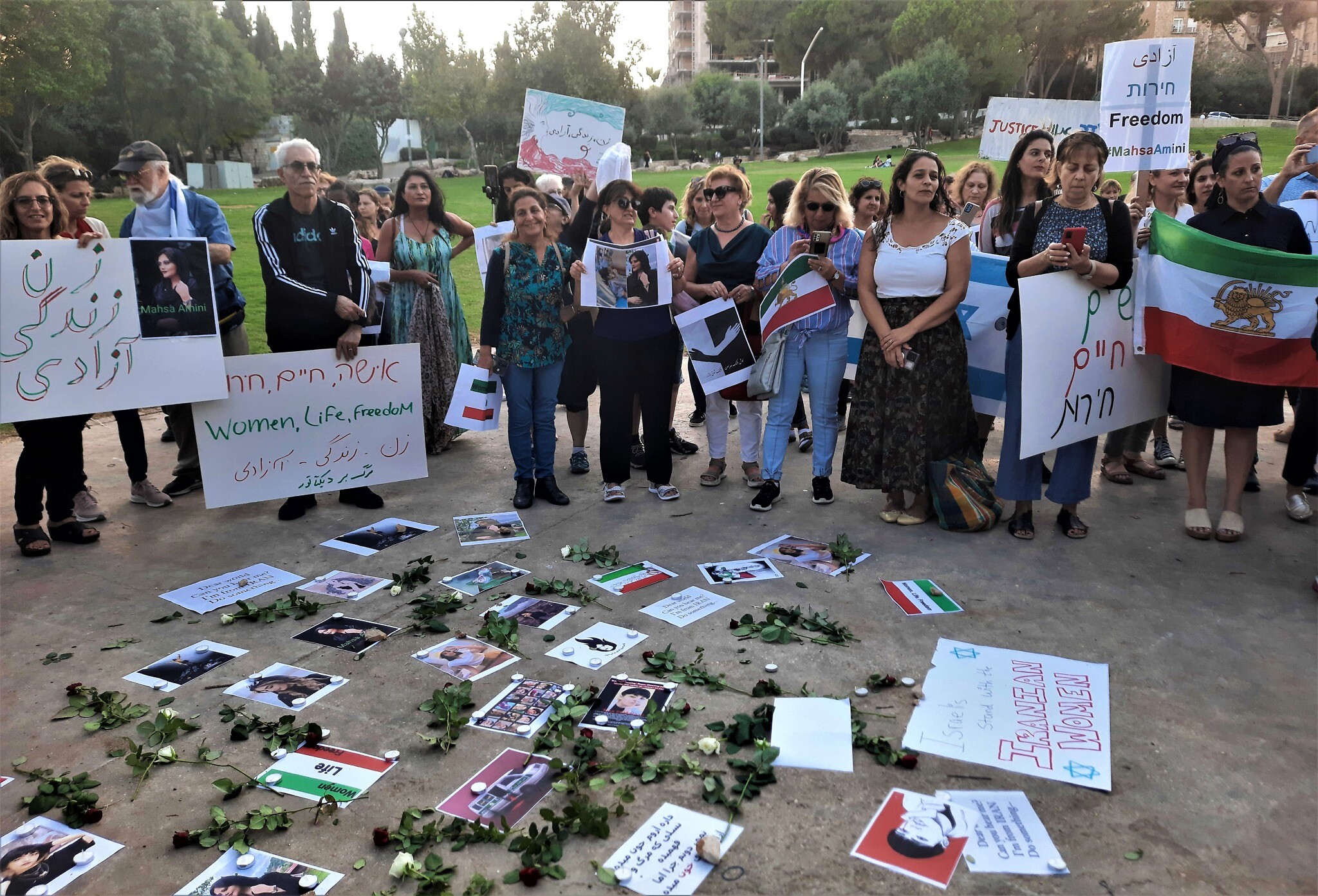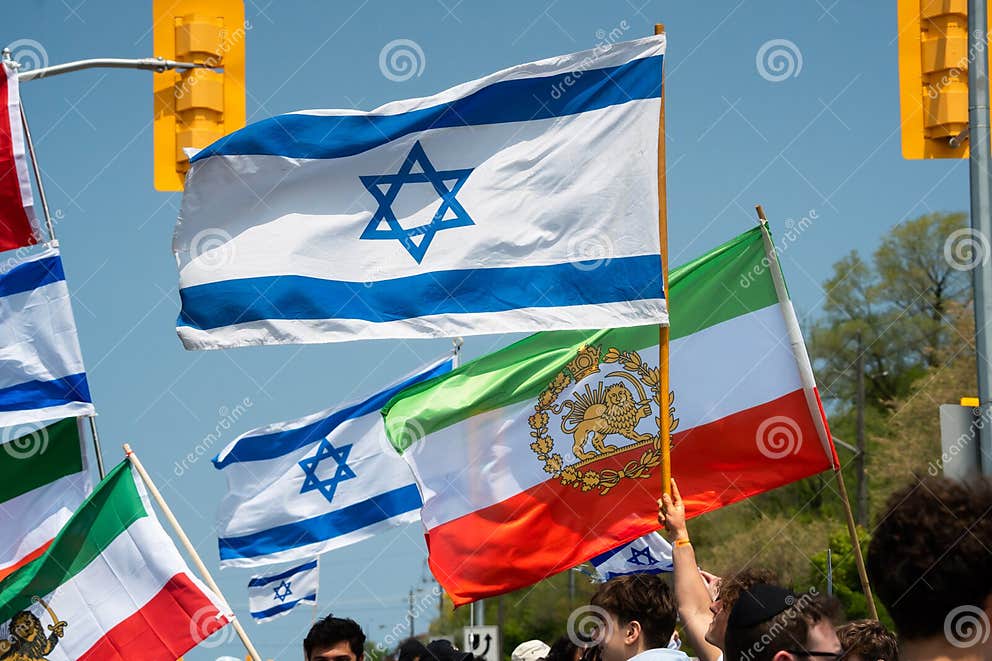Historical Context and Relations

The relationship between Iran and Israel has been marked by deep-seated mistrust and conflict, rooted in historical, ideological, and geopolitical factors. This complex relationship has evolved over decades, shaped by a series of significant events and turning points.
Early Interactions and the Formation of Israel
The relationship between Iran and Israel can be traced back to the early 20th century, when both countries were under British influence. While Iran maintained a neutral stance during the 1948 Arab-Israeli War, it did not formally recognize Israel. The establishment of Israel in 1948 further strained relations, as Iran saw it as a threat to its regional influence and a symbol of Western colonialism.
The 1979 Iranian Revolution and its Impact
The 1979 Iranian Revolution ushered in a new era of hostility between Iran and Israel. The Islamic Republic, under the leadership of Ayatollah Khomeini, declared Israel an illegitimate state and a major threat to the Islamic world. This declaration was fueled by the perceived alliance between Israel and the United States, which had supported the Shah of Iran before the revolution. The revolution also led to the closure of Israel’s embassy in Tehran and the establishment of a close relationship between Iran and the Palestine Liberation Organization (PLO).
The Role of External Actors
The relationship between Iran and Israel has been heavily influenced by external actors, particularly the United States and the Soviet Union. During the Cold War, the United States supported Israel, while the Soviet Union supported Iran. This rivalry contributed to the escalation of tensions between the two countries. After the collapse of the Soviet Union, the United States continued to maintain a close alliance with Israel, while Iran became a major regional power.
The 1980-1988 Iran-Iraq War
The Iran-Iraq War (1980-1988) further strained relations between Iran and Israel. While Israel did not directly participate in the war, it provided intelligence and logistical support to Iraq, which was seen as a counterweight to Iran’s growing regional influence. Iran viewed Israel’s support for Iraq as a hostile act and a sign of its commitment to containing Iran’s power.
The Post-Cold War Era and the Rise of Nuclear Concerns
The post-Cold War era witnessed a shift in the Iran-Israel relationship, marked by the rise of nuclear concerns. Iran’s pursuit of nuclear technology, which Israel and the United States viewed as a threat, led to a series of sanctions and diplomatic efforts to curb Iran’s nuclear program. This has become a major point of contention between the two countries, contributing to a heightened sense of tension and the potential for conflict.
Political and Ideological Differences

The complex relationship between Iran and Israel is deeply rooted in their divergent political and ideological stances on a range of critical issues. These differences have shaped their interactions and contributed to the ongoing tensions in the Middle East.
The Palestinian Conflict
The Palestinian conflict is a central point of contention between Iran and Israel. Iran strongly supports the Palestinian cause, viewing it as a struggle against Israeli occupation and oppression. Iran’s official position aligns with the Palestinian Liberation Organization (PLO), advocating for a two-state solution with East Jerusalem as the capital of a Palestinian state. Conversely, Israel has long maintained a policy of settlement expansion in the West Bank, which is widely condemned by the international community as a violation of international law. This policy further fuels tensions with Iran, which sees it as a deliberate attempt to undermine Palestinian aspirations for statehood. The Israeli government’s stance on the conflict, often perceived as uncompromising, has further solidified Iran’s perception of Israel as an aggressor in the region.
Nuclear Proliferation
Iran’s nuclear program has been a source of significant tension with Israel. Israel, possessing a nuclear arsenal, views Iran’s nuclear ambitions as a threat to its national security. This concern stems from the possibility that Iran could develop nuclear weapons, potentially destabilizing the region. Iran, on the other hand, insists its nuclear program is for peaceful purposes, aimed at generating electricity and conducting research. Despite international sanctions and negotiations, the issue of Iran’s nuclear program remains a point of contention and a major obstacle to improving relations between the two countries.
Regional Security
Iran and Israel have conflicting views on regional security, often supporting opposing sides in regional conflicts. Iran’s influence extends across the Middle East, particularly in countries like Syria, Lebanon, and Iraq. This influence has been viewed with suspicion by Israel, which sees Iran as a destabilizing force in the region. Israel, on the other hand, has established close ties with some of Iran’s regional rivals, including Saudi Arabia and the United Arab Emirates. This strategic alliance further contributes to the rivalry between Iran and Israel, creating a complex web of alliances and rivalries that often lead to proxy conflicts.
Religious and Cultural Factors
Religious and cultural factors also play a significant role in shaping the Iran-Israel relationship. Iran is a predominantly Shia Muslim country, while Israel is a Jewish state. These distinct religious identities have historically fueled tensions and contributed to a sense of distrust between the two nations. The Islamic Revolution in Iran in 1979, which established an Islamic Republic, further intensified this religious divide. Iran’s leadership has often used religious rhetoric to denounce Israel, labeling it as an illegitimate state and an enemy of Islam. In turn, Israel’s leaders have expressed concerns about Iran’s alleged support for terrorism and its hostile rhetoric towards Israel. These religious and cultural differences have made it challenging to find common ground and have contributed to a deeply entrenched animosity between the two countries.
Current Issues and Challenges: Iranian Israeli

The relationship between Iran and Israel remains complex and fraught with challenges. Both countries are deeply entrenched in regional power dynamics, and their historical and ideological differences have often fueled tensions and conflict. This section explores the most pressing current issues and challenges in the Iran-Israel relationship, examining their impact on regional stability and global security.
Nuclear Negotiations, Iranian israeli
The ongoing nuclear negotiations between Iran and world powers, including the United States, have been a major source of tension in the Iran-Israel relationship. Israel views Iran’s nuclear program as a serious threat to its national security and has consistently opposed any agreement that would allow Iran to develop nuclear weapons. The negotiations have been marked by periods of progress and setbacks, with Israel often expressing concerns about the effectiveness of any potential agreement.
Regional Conflicts
Iran and Israel are deeply involved in various regional conflicts, particularly in Syria, Lebanon, and the Gaza Strip. Iran supports Hezbollah in Lebanon and various Palestinian militant groups in Gaza, while Israel considers these groups a significant security threat. The presence of Iranian-backed forces in Syria, close to Israel’s border, has also been a source of concern for Israel. These conflicts have contributed to a climate of mistrust and instability in the region, making it difficult to achieve lasting peace.
Cybersecurity
Cybersecurity has emerged as a significant challenge in the Iran-Israel relationship. Both countries have been accused of engaging in cyberattacks against each other’s infrastructure and institutions. These attacks have targeted government agencies, critical infrastructure, and private businesses, raising concerns about the potential for escalation and disruption. The growing reliance on digital technologies has made both countries vulnerable to cyber threats, highlighting the importance of international cooperation to address this issue.
Timeline of Recent Events
- 2015: Iran and six world powers (the United States, the United Kingdom, France, Germany, Russia, and China) reach a historic agreement on Iran’s nuclear program. Israel opposes the agreement, arguing that it does not sufficiently restrict Iran’s nuclear ambitions.
- 2018: The United States withdraws from the nuclear agreement and reimposes sanctions on Iran. Israel welcomes the US withdrawal and continues to press for a tougher approach towards Iran.
- 2020: Israel carries out a series of airstrikes against Iranian-backed targets in Syria, escalating tensions between the two countries.
- 2021: The Biden administration re-enters negotiations with Iran to revive the nuclear deal. Israel remains skeptical of the negotiations and continues to call for a more comprehensive approach to Iran’s nuclear program and regional activities.
- 2022: Israel launches a series of airstrikes against Iranian-backed targets in Syria, claiming that Iran is attempting to establish a permanent military presence in the country.
Potential Future Developments
The future of the Iran-Israel relationship remains uncertain. Several factors could shape the trajectory of their relationship, including the outcome of nuclear negotiations, the evolving political landscape in both countries, and regional dynamics.
- A renewed nuclear deal: If the nuclear negotiations are successful, it could lead to a period of reduced tensions between Iran and Israel. However, even if a deal is reached, Israel is likely to remain wary of Iran’s intentions and continue to monitor its activities closely.
- Escalation of regional conflicts: Continued Iranian support for Hezbollah and other militant groups in the region could lead to further escalation of conflicts with Israel. This could result in a wider regional war, with potentially devastating consequences.
- Cyber warfare: The use of cyberattacks by both countries could intensify, potentially targeting critical infrastructure and disrupting essential services. This could lead to a new form of warfare, with potentially unpredictable consequences.
- Increased cooperation: While unlikely in the near term, it is possible that Iran and Israel could find common ground on certain issues, such as the fight against terrorism or the need for regional stability. However, this would require significant changes in their respective policies and a willingness to overcome deep-seated mistrust.
Iranian israeli – Yo, Iranian-Israeli relations are like, super complex, right? But hey, at least we can all agree that comfy furniture is a universal vibe. Check out this IKEA Tullsta chair cover guide – it’s got some sick tips on styling and care.
Maybe if we all chilled out in some comfy chairs, we could finally figure out this whole Iran-Israel thing, ya know?
Yo, Iranian-Israeli relations, it’s like a rollercoaster, up and down, you know? But, like, if you’re trying to make a good first impression on your guests, you gotta have a killer entryway, right? Check out this link for some sick ideas on entryway chair and table combos: entryway chair and table.
Maybe that’ll help ease some tension between Iran and Israel, who knows? Peace out.
